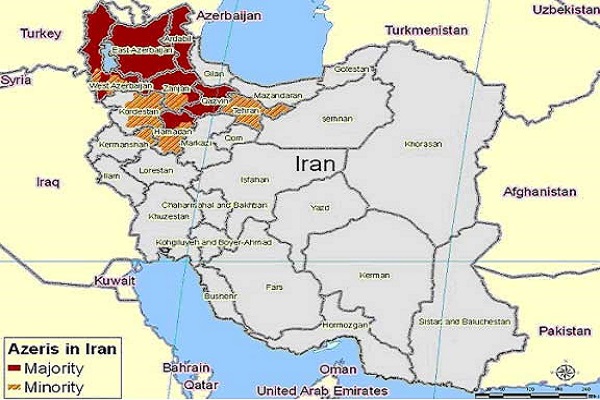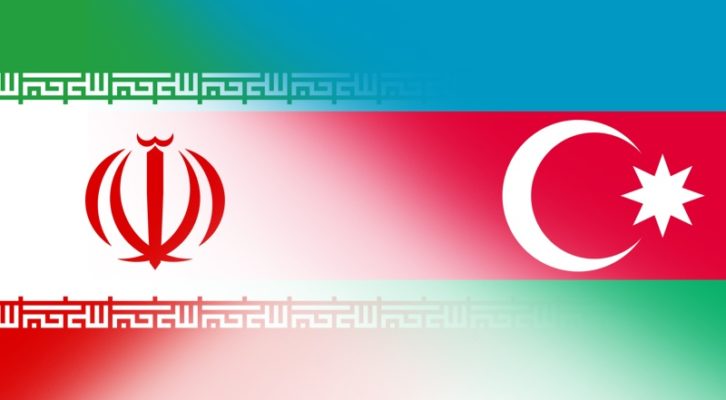Barely two weeks in office, the Trump administration has already sharply escalated tensions with Iran.
First, it targeted Iranian citizens in a shameful and illegal visa ban, alongside citizens of six other predominantly Muslim countries, ostensibly on counter-terrorism grounds – despite the fact that no Iranians have ever committed terror acts on the American soil. Then came National Security Advisor’s Michael Flynn’s threats against Iran on account of what he called its “destabilizing behavior in the region.” These comments were ratified by Trump himself and followed by swift imposition of new sanctions over Iran’s ballistic missile tests, even though they are not prohibited by UN Security Council resolutions or the Iran nuclear deal. Defense Secretary James Mattis, sometimes deemed a moderating influence in the Trump administration, recently reiterated the charge that Iran is “the world’s biggest state sponsor of terrorism.”
With renewed U.S. aggression, those who have long wished for the ouster of Iran’s government are salivating at the prospect of war.
The radical cult-like Mujahedeen-e Khalq (MEK), a deep-pocketed exile group bitterly opposed to the Islamic Republic that was designated a terrorist organization by the U.S. government until 2012, is once again emboldened. Its political supporters in Washington, including many former U.S. officials, are actively pressing their “regime change in Iran” agenda to the new administration.
Michael Makovsky, a former Pentagon official in the George W. Bush administration and currently the head of the hawkish Washington-based Jewish Institute for National Security Affairs (JINSA), has argued for a renewal of a “credible military threat” against Iran.
Against this backdrop, it is hardly surprising that another traditionally anti-Iranian constituency – ethnic separatists in Iran – feel that the return of a more aggressive United States posture against Iran offers them a new window of opportunity. Members of such groups have increased their lobbying efforts in European parliaments and the U.S. Congress. Some of them, such as the Democratic Solidarity Party of Ahwaz, Democratic Party of Iranian Kurdistan, Southern Azerbaijan Democratic Party (SADP) and the Baluchistan Peoples Party act under the aegis of the Unrepresented Nations and Peoples Organization (UNPO).
While denying they espouse a separatist agenda, advocating instead for a “federalization” in a future “secular, democratic Iran,” the uncompromising attitudes of these groups render such protestations scarcely credible.
Azeri Separatism and Its Discontents

Concentration of Azeri ethnic group in Iran
Azerbaijani separatism would pose the most serious, even existential, threat to Iran. The northwestern Azeri provinces in Iran cover roughly 50,000 square miles. Azeris, or Azeri Turks, are by far the biggest ethnic minority in Iran, according to some estimates, numbering upwards of 16 million and accounting for as much as a quarter of the Iranian population. They are also the best-integrated minority, with numerous members of the Iranian political, military, economic, clerical, and cultural elite being of Azerbaijani origin, including none other than the Supreme Leader Ayatollah Khamenei. Unlike, for example, the southeast Iranian province of Baluchistan, which is geographically remote, politically isolated, culturally insular, financially poor, and whose residents are mostly Sunni Muslim, the separation, secession, and independence of Iranian Azerbaijan would effectively mean the end of Iran as we know it.
Unlike all other Iranian minorities (with the exception of the Turkmens, though they are relatively small), Azerbaijani provinces of Iran border an independent state with the same name – the Republic of Azerbaijan. That nation, from the moment of its emergence from the ashes of the Soviet Union, has embraced an irredentist agenda regarding Iranian Azerbaijan, or what the Azerbaijani government in Baku still calls “southern Azerbaijan.” While this fiercely nationalistic, reunification rhetoric has subsided somewhat and is not part of official Baku discourse, there are other factors that could result in a resurgence of such policies, namely the Trump administration’s hostility towards Iran and increased fealty towards Israel.
The Israeli Connection
From the Israeli perspective, Azerbaijan is a cog in its updated “periphery strategy” designed to contain its enemies, chief among them the Islamic Republic of Iran. Yossi Alpher, a former Mossad operative and Israel’s foremost authority on the “alliance of the periphery,” noted in his book on the subject that Azerbaijan is seen by Israel as an important strategic asset, because of its geographical proximity to Iran and the alleged leveraged the Baku government could have in effectively stirring up domestic Iranian Azeri hostility towards Tehran. As another Israeli expert Eli Podeh has inelegantly put it, Israel sees Azerbaijan as its “mistress.”
With the Trump administration adopting a more aggressive, Israel-aligned posture against Iran, Azerbaijan,and the Azeri minority in Iran could again become targets of an old neoconservative effort to enlist them in their feud with the Islamic Republic. Indeed, in a recent Wall Street Journal piece, JINSA’s Makovsky openly called upon the new administration to lure Azerbaijan, alongside the Persian Gulf monarchies, into a resurgent “anti-Iranian regional coalition.”
The confluence of these factors explains Tehran’s harsh reaction to Israeli Prime Minister Benyamin Netanyahu’s recent visit to Baku. Under President Rouhani, Iran has tried to build pragmatic relations with its neighbors, including Azerbaijan, focusing on mutually beneficial economic cooperation rather than divisive issues, like Israel. But Netanyahu’s visit was seen in Tehran as part of a plot to isolate Iran regionally. The visit also raised questions as to why Azerbaijan opted to be so provocative, when just recently Baku made efforts to improve relations with Tehran, including an unprecedented trilateral Russian-Iranian-Azerbaijani summit hosted by the President Ilham Aliyev in Baku in August 2016.
Responding to the Iranian reaction following Netanyahu’s visit to Baku, Qudrat Hasanquliyev, a member of a puppet opposition party in the Azerbaijani parliament, threatened to “erase Iran from the map” and divide it into five states, if Iran were to attack Azerbaijan. Parliament Speaker, Oqtay Asadov, issued a milder statement warning Iran not to interfere in Azerbaijan’s internal affairs. He also expressed a belief, common in Baku, that Iran is poorly placed to criticize Azerbaijan for relations with Israel, as long as it enjoys warm ties with Armenia, which occupies up to 20% of Azerbaijan’s territory.
This last argument is particularly disingenuous. Unlike Israel’s close relationship with Azerbaijan, Iran does not sell any weapons to Armenia, nor does the government in Tehran seek to undermine Azerbaijan at every turn, as Israel does with Iran.
None of this means, of course, that Israel’s efforts to enlist Azerbaijan in an anti-Iranian coalition and stir up trouble amongst ethnic Azeris in Iran will work. Indeed, Yossi Alpher, the former Mossad analyst, dismissed such hopes as wishful thinking, noting how well integrated most Azeris are in Iranian society.
Baku to the Future
The Republic of Azerbaijan is also likely to weigh its options carefully, when it comes to taking action against Iran.
For one, its economy is suffering due to a slump in oil prices and urgently requires diversification. Azerbaijan has been recently promoting itself as an emerging Eurasian transport, trade, and logistics hub. Developing such links was one of the primary motives behind President Aliyev’s initiative to hold a trilateral summit with his Russian and Iranian counterparts. Iran’s cooperation is essential for this vision to bear fruit.
Another reason why Baku is likely to tread carefully in its relations with Tehran is that Iran could make use of radical Shiite Islamists in Azerbaijan against the Aliyev administration. Lately, for instance, while relations between Azerbaijan and Iran were improving, Tehran remained silent on the continuing arrest and harassment of Shiite activists, declaring it to be Azerbaijan’s internal affair. In a more confrontational atmosphere, this is likely to change.
There is also the chance, albeit almost infinitesimally remote, that if President Trump indeed lives up to his campaign rhetoric of improving relations with Russia and focusing his Middle East policies on defeating ISIS and al Qaeda, he will tone down his hostility toward Iran.
None of these possibilities, however, mean that Iran can afford to sit on the sidelines and wait to see what happens. Efforts to undermine the Islamic Republic have been remarkably consistent over the decades, and its opponents have never been deterred from doubling down on failed policies of hostility and regime change.
Iran would be wise to take precautions. Attention should be paid to whatever legitimate cultural concerns Iranians Azeris and other minorities may have by, for example, facilitating education in their languages. A genuine respect for diversity would be the best way to neutralize any troublesome meddling by outside actors in Iranian affairs.
The article originally was published in Muftah.org







